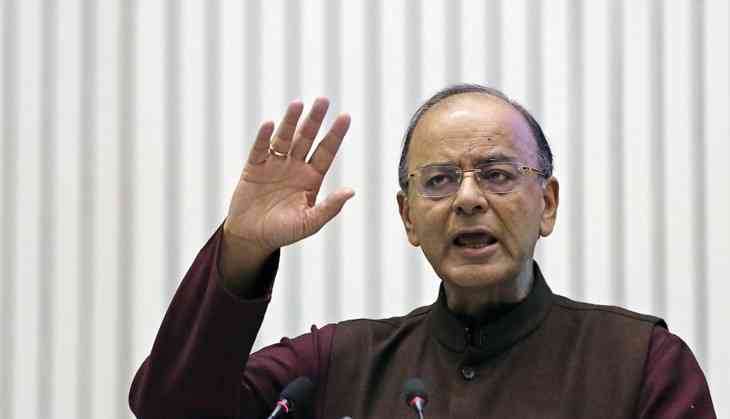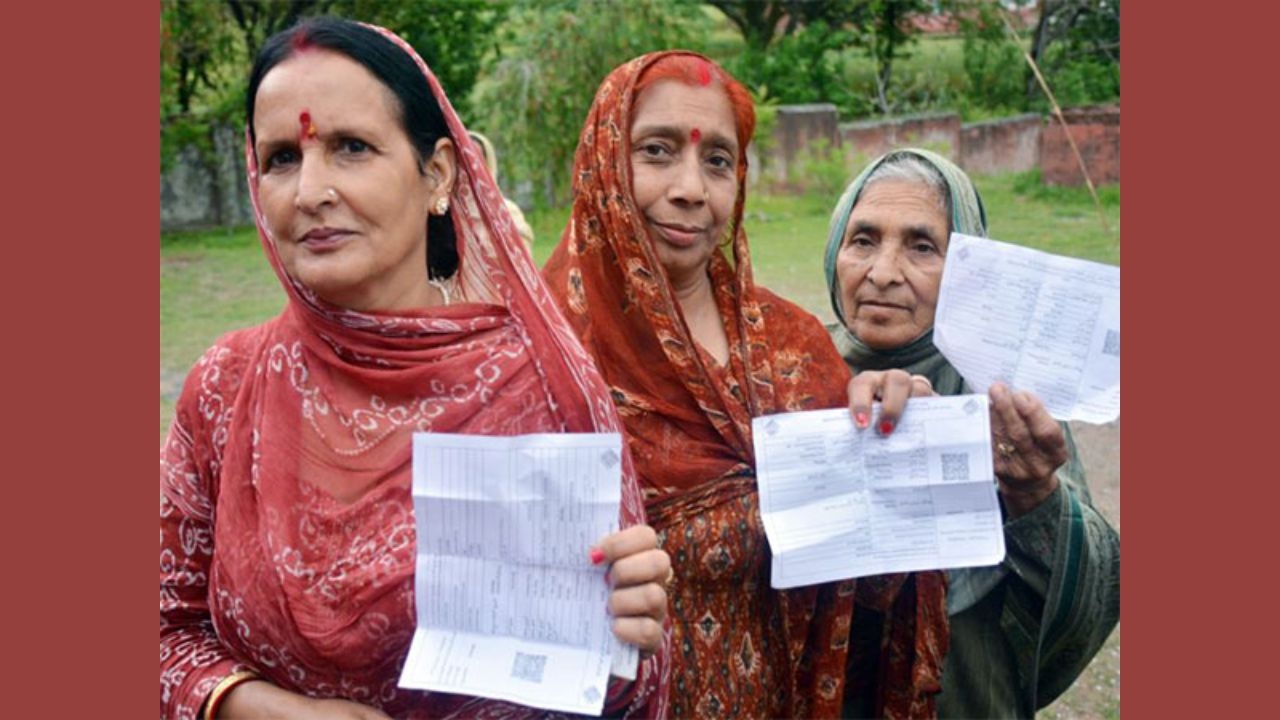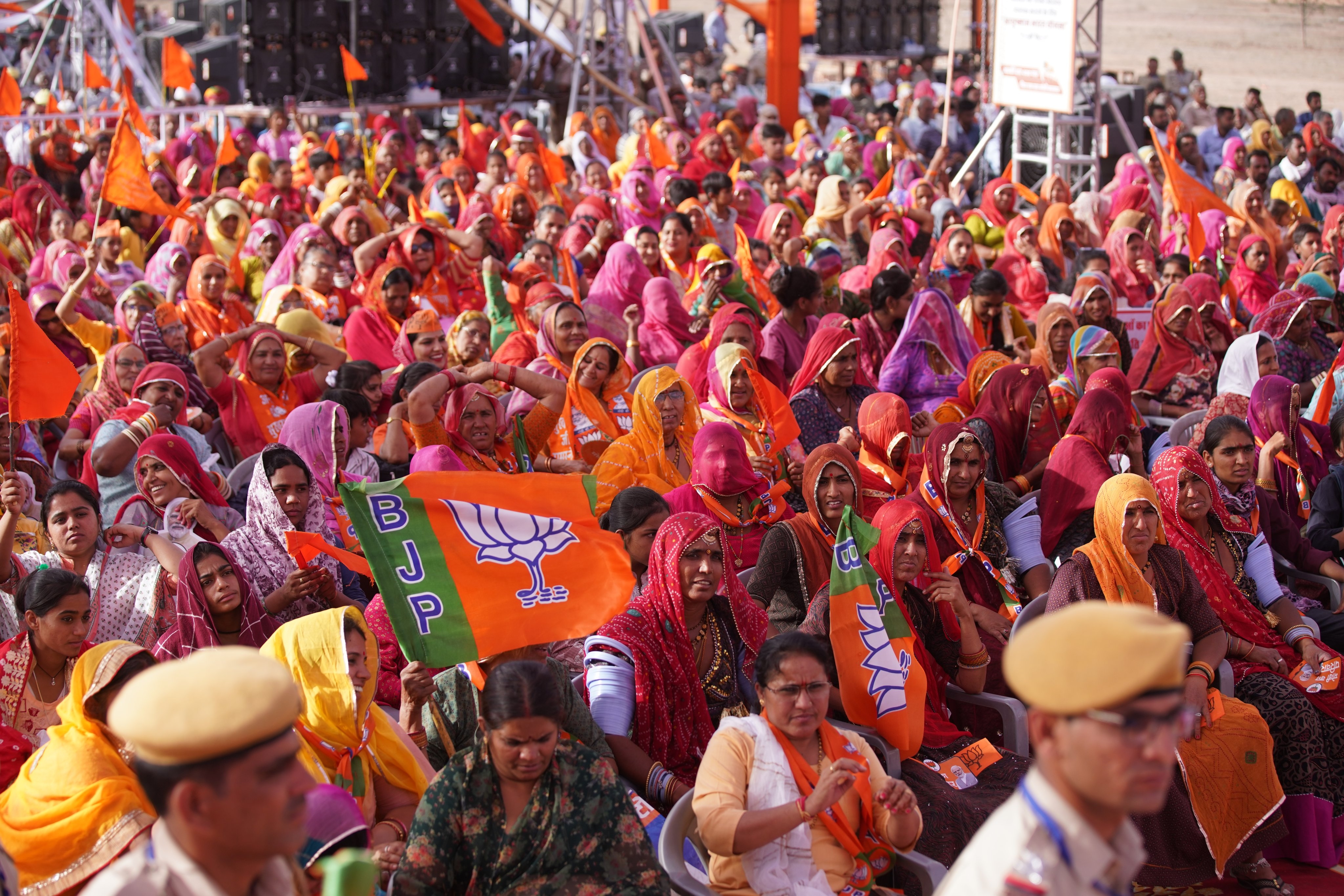
Coming out strongly to defend his government over charges of crony capitalism and favouring a private company in the Rafale aircraft deal, Finance Minister Arun Jaitley on Wednesday said that it was a government to government deal and no third party was involved.
In an exclusive interview to ANI, Jaitley clarified that there was an offset clause attached with a foreign vendor and it is mandatory for them to partner with an Indian firm, adding that the government is not involved with who these foreign companies collaborate for offset purpose.
On a question that Congress is levelling charges on the government for favouring Anil Ambani's Reliance Defence due to his closeness to the members of the Bharatiya Janata Party (BJP), Jaitley made it clear that governments only deal with governments and the offset has nothing to do with the contract.
"Let's be clear, this is a government to government arrangement. Offset has nothing to do with this contract. There are 100s of offsets in India. Government will purchase 36 fully-loaded aircrafts coming all the way from France, manufactured in France, no private party involved. Government of India's role ends there. Under a policy devised by the UPA, every defence supplier (original equipment manufacturer or OEM) has to undertake some offsets. Purchases have to be made from India equivalent to about 30 per cent of the total contract value. Who will he make purchases from? He selects his own partners. Those purchases have nothing to do with Rafale or these aircrafts. He could be buying guns, pistols, binoculars or some spare parts. For this purpose, not only Rafale but every defence manufacturer has to enter into offset contracts," Jaitley said.
He added that these companies can enter into offset contracts in India's private sector or public sector. "DASSAULT can also enter into contracts with whomever they want and the GoI has nothing to do with it. They won't enter into contract with only one. They may enter into offsets with several companies in both private and public sector. In fact, DASSAULT has also entered into one contract for offset with public sector in India. This is not the first defence purchase. There have been dozens, if not 100s of defence purchases. Every OEM does his offset purchases," Jaitley said.
On the question of keeping Hindustan Aeronautics Limited (HAL) out from the Rafale deal, Jaitley said there is a retail correspondence on why this happened and probably that was one of the considerations that weighed with the UPA in the abandoned deal, because they had serious doubts about manufacturing abilities in India.
"HAL has a sufficient order line to keep themselves reasonably busy. Therefore, there are other PSUs that are getting it. Question is, if IAF needs the aircraft immediately, do they wait for an Indian company to acquire expertise to then start manufacturing without knowing the ability of how good an aircraft they can manufacture and wait till the cows come home before you get the aircrafts in hand? Or is it that you need urgently.UPA wasted 10 years, NDA was not willing for this kind of policy paralysis in decision making. So the fully loaded aircrafts will come, we will pay for them, that's our only deal. Who they purchase their aircrafts from is DASSAULT's prerogative," the minister said.
Responding to Congress allegations of favouring private parties in the deal, Jaitley said that the effort is to promote Make in India and help Indian industries grow.
"For some reason, the Congress party's approach when it was in power for a long time was extremely retrograde. We will buy 100 per cent from foreign governments and companies but we will not allow India's private sector to manufacture, and, therefore, defence, for a long time, remained a prerogative of the public sector. Public sector did some good role, therefore, high exclusive technologies were only available with some of the most important foreign companies which were manufacturing in Russia, France, Germany or the United States. You have to enter into collaborations with them," he said.
"During Mr (Atal Bihari) Vajpayee's government, we opened up 26 per cent. When I became Defence Minister in 2014, I made it 49 per cent (FDI). Even at 49 per cent many of them said why should I pass my exclusive technology and intellectual property to a company which is 51per cent Indian. So, we had to say, in cutting edge technologies we are willing to go up. Now if you see that process we have started where a large number of Indian companies, whether it is the Tatas or Mahindra or L&T, have started getting into international collaborations with foreign players whether manufacturing aircrafts, ships or other weaponry is concerned," he added.
"I, in fact, had two small tenures as Defence Minister. I opened it up in the first tenure, finalised a strategic partner policy in the second. For each platform, shipping or aircraft or weaponry, the GoI would identify one strategic partner which would be an Indian company. That company will then get a manufacturing base of that platform in India and government will have to make purchases from them, and they can enter into collaborations with technology suppliers who have huge international experience. That's the process we are trying to encourage, which all these years has been put on a backburner," Jaitley said.
He further said that there is a larger public interest, and policies are not changed regularly.
"The object of offsets is also that India had no defence manufacturing potential. Firstly, PSUs came up, some potential came up. Now private sector has started coming in. Today we changed the policy to allow even private sector to start manufacturing in collaboration with foreign principles. Public sector can also enter into those collaborations. HAL can still enter into a re-collaboration. HAL is in fact entering into collaborations with foreign principles to start manufacturing in various areas. Now the sky is the limit. The question is that the object behind the offset policy of the UPA was that you must augment domestic capacities and the foreign supplier must buy 30 per cent equivalent from Indian manufacturers so that some capacity building takes place. Why should we abandon that?" he added.
(ANI)







![BJP's Kapil Mishra recreates Shankar Mahadevan’s ‘Breathless’ song to highlight Delhi pollution [WATCH] BJP's Kapil Mishra recreates Shankar Mahadevan’s ‘Breathless’ song to highlight Delhi pollution [WATCH]](http://images.catchnews.com/upload/2022/11/03/kapil-mishra_240884_300x172.png)

![Anupam Kher shares pictures of his toned body on 67th birthday [MUST SEE] Anupam Kher shares pictures of his toned body on 67th birthday [MUST SEE]](http://images.catchnews.com/upload/2022/03/07/Anupam_kher_231145_300x172.jpg)






